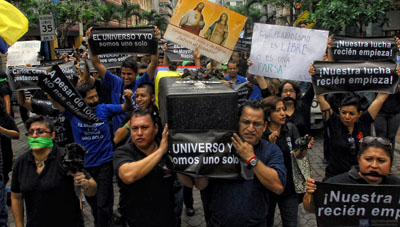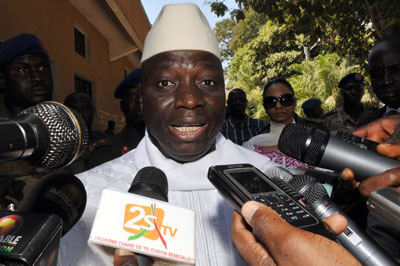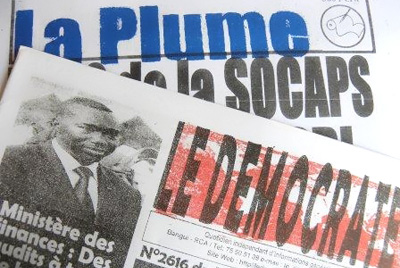Attacks on the Press in 2011: State Media As Anti-Media Tool
In some Latin American countries, state-owned media are used not only for propaganda but as platforms to smear critics, including journalists. Some elected leaders have even invested in large multimedia holdings to further their agendas. By Carlos Lauría

In Ecuador, a crushed and silenced democracy
The sentence against Ecuadoran newspaper El Universo, its opinion editor, Emilio Palacio Urrutia, and its three top executives, Carlos Eduardo Pérez Barriga, César Enrique Pérez Barriga, and Carlos Nicolás Pérez Lapentti, for supposed offenses against Ecuadoran President Rafael Correa in Palacio’s article “NO to lies,” is a worn-out manifestation of the perverse concept of public…

El Universo verdict bad precedent for free press in Americas
New York, February 16, 2012–Today’s decision by Ecuador’s highest court to uphold the criminal libel conviction brought by President Rafael Correa against El Universo represents a serious blow to freedom of expression and a setback for democracy, the Committee to Protect Journalists said.

For Gambia’s press, positive developments?
Good news for Gambia’s beleaguered independent press has been rare during President Yahya Jammeh’s 17-year rule, but last week brought three potentially positive developments. It’s unclear whether they mark a real change in the status quo, but they may at least increase the resolve of advocacy groups to seek improvements.
Tunisian court should drop prison term given to journalist
New York, February 6, 2012–A Tunisian appeals court should throw out the prison sentence against journalist Abdel Aziz al-Jaridi at a February 10 hearing and authorities should use his case as an opportunity to break from the repressive practices of Zine El Abidine Ben Ali’s era, the Committee to Protect Journalists said today.
Can an Indian cartoonist be barred from mocking the state?
The case of a cartoonist charged with treason and offending India’s national sentiments reflects a growing debate over what constitutes freedom of expression in India. His accusers argue that while it is permissible to make fun of politicians, you cannot make fun of the state. Not everyone agrees.

